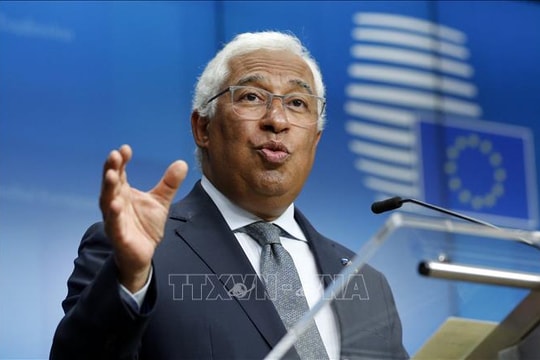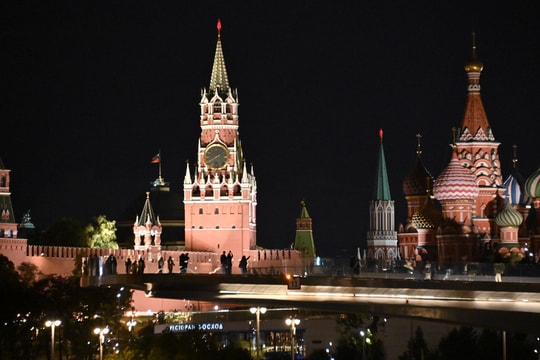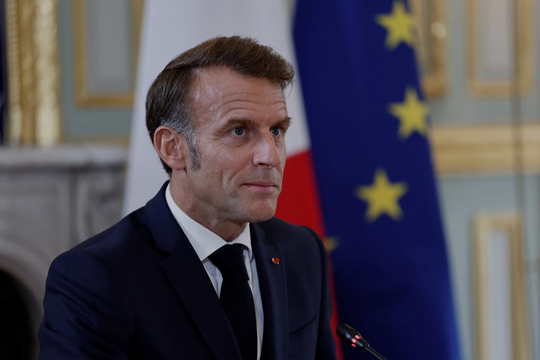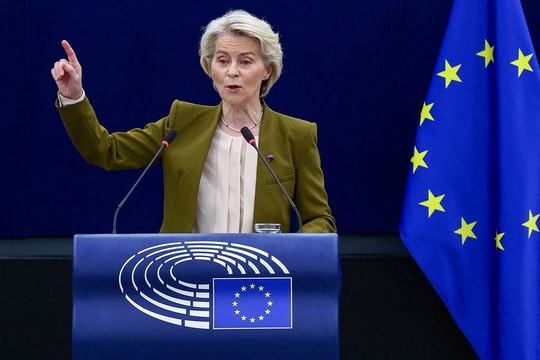UK-EU: Discord but difficult to break up
(Baonghean) - British politics is in its hottest phase right before the referendum on withdrawal from the European Union, known as Brexit. British voters will go to the polls on June 23, 2016 and some public opinion polls show that the number of people supporting Brexit is a few percent higher. To understand this referendum, Nghe An Newspaper had a conversation with Professor, Doctor, Major General Le Van Cuong - Former Director of the Institute of Science and Strategy of the Ministry of Public Security.
Reporter: In recent months, international public opinion has been paying much attention to the UK's referendum on whether to leave or remain in the EU. Before discussing the causes and consequences, could you briefly summarize the discord between the UK and the EU?
Major General Le Van Cuong:The relationship between the UK and the EU has been a rocky one for more than half a century. In 1957, six European countries, Germany, Italy, France, Belgium, the Netherlands, and Luxembourg, signed the Rome Treaty establishing the European Community, but the UK did not participate. It was not until 1973 that the ruling Conservative Party in the UK decided to join the European Community.
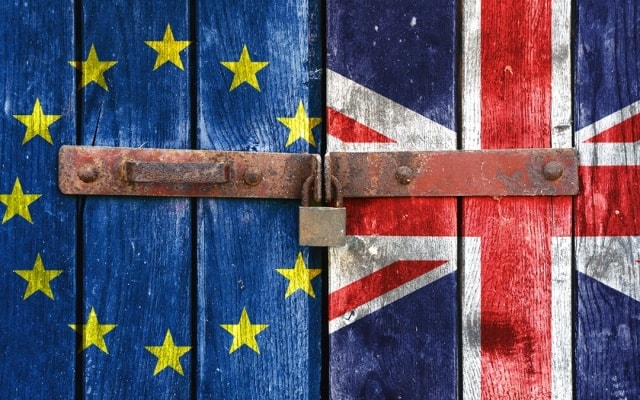 |
| Can Britain and the EU mend their ways? Photo: Internet |
But soon after, in 1975, because of disagreements over the issue of paying 6 billion pounds in annual membership fees, the British ruling Labour Party held the first referendum on leaving the European community. The result was 67.23% of the British people voted to stay in Europe.
This referendum won with Britain remaining in Europe but created a bad precedent within British society. That is the formation of two streams of thought, one is to stay in Europe, the other is to leave Europe.
In 2002, when the euro was born, the eurozone was established, but Britain did not join and continued to use the pound. Even with the Schengen agreement on the abolition of border controls between European countries, which has 26 members, among the 22 participating European countries, Britain was not included.
Historically, Britain is a country with a European tradition but its ideology is not European. As an island nation with a tradition of nearly 200 years of world domination, the British once recognized that “the sun never sets on England”, were proud of being civilized before Europe, proud of having given birth to giants like Newton, Shakespeare, proud of defeating Hitler.
As a country that is completely oriented towards international trade, before 1973, Britain's trade with the EU was less than the rest of the world. All of that created a British character that was completely different from the rest of the "old continent". For the past 50 years, the British have always been skeptical of Europe, with some individuals even looking down on Europe and demanding that Britain leave Europe.
PV: According to the Major General, what factors have directly promoted Euroskepticism and the idea of leaving Europe among British voters in recent times?
Major General Le Van Cuong:In recent years, there have been many important factors that have pushed forces to leave Europe. First, the issue of immigration, especially immigration from Eastern European countries. From 1998 to 2010, under pressure from the US, NATO expanded eastward to Russia's western and northern borders, narrowing Russia's strategic space. Also under pressure from the US, the EU admitted 10 more Eastern European and Baltic countries into the European community.
From the British point of view, this admission does not bring any benefits, but only leads to the consequence of Eastern Europeans and Baltics flooding into the UK. On the one hand, they are a source of labor to promote the development of the British economy, but on the other hand, they give rise to difficulties in health care, social security, especially housing problems. The immigration crisis in 2015-2016 from conflicts in Libya, Afghanistan, Yemen, and Libya has always made the UK insecure and fearful.
The British believe that there are definitely Islamic jihadists in that influx of immigrants, and they always feel threatened by terrorism. Second, the crisis of the eurozone from 2008 to now has not shown any signs of stopping. The big guys in the bloc such as Germany and France are struggling to save Greece - one of the smallest countries that have not yet emerged, and the economies of Italy, Spain and Portugal continue to struggle. This crisis makes the UK think that it would be disadvantageous to continue to stick with the EU, and even get caught up in the mess.
PV: So, why did Prime Minister David Cameron bring the referendum to this moment, Major General?
Major General Le Van Cuong:There are two reasons that prompted British Prime Minister Cameron to decide to hold a referendum at this time. First, it stems from the mistakes in the economic and social policies during the 2010-2015 term of the Conservative Party, headed by Prime Minister Cameron.
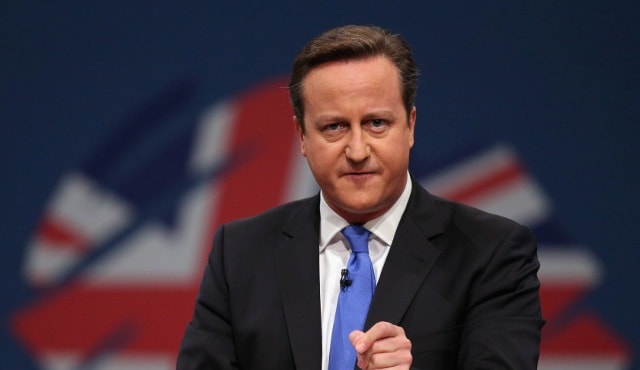 |
| Is the referendum just a political card of the British Prime Minister? Photo: Internet |
Those mistakes have negatively impacted the interests of the middle and lower classes in society, accounting for about 68% of the British people, so the majority of British people oppose the Conservative Party and are dissatisfied with Prime Minister Cameron. In that situation, in the 2015 election, in the 2013-2014 election campaign, the Conservative Party launched a referendum to ask the British people whether to stay or leave Europe.
In fact, during the election process, the Conservative Party raised the Brexit flag with a strong populist color to mislead public opinion to win votes from the right wing and the people. Therefore, for the UK internally, the referendum is just an election tool to win in 2015.
In terms of foreign affairs, in relations with the EU, Cameron used the referendum to “bargain” with Europe. The referendum took place in 2015 and 2016 - a time when Europe was struggling to cope with three simultaneous crises: immigration, the eurozone economy and the Schengen agreement.
Along with struggling against 3 crises, Europe also had to face the bloody terrorist attacks caused by IS and Al Queda in France in November 2015 and Belgium in March 2016. The British Prime Minister believed that with those difficulties, the EU would not be able to bear it if Britain left Europe and he held a referendum to force Europe to make concessions, compromise and bring benefits to this foggy country. And exactly as Cameron had outlined, on February 20, 2016, the EU was forced to make concessions to Britain in reducing and ending subsidies for immigrants.
After winning, Cameron turned his attention back to campaigning for British voters to vote to remain in Europe. The referendum was seen as a political ploy for the British Prime Minister to maintain his leadership position.
PV: Can you predict the consequences of Britain leaving Europe?
Major General Le Van Cuong:For Britain, if it leaves Europe, it will face many economic difficulties and will certainly fall into a prolonged recession. The EU is a leading trading partner, accounting for 50% of Britain's foreign trade. When it leaves the EU, Britain will lose many trade privileges. The US has announced that it will not negotiate with Britain, and Britain will lose its status as the EU's representative in the US. When it leaves Europe, Britain will not easily find markets to fill the void left by Europe. In addition, it will be a loss for British finances.
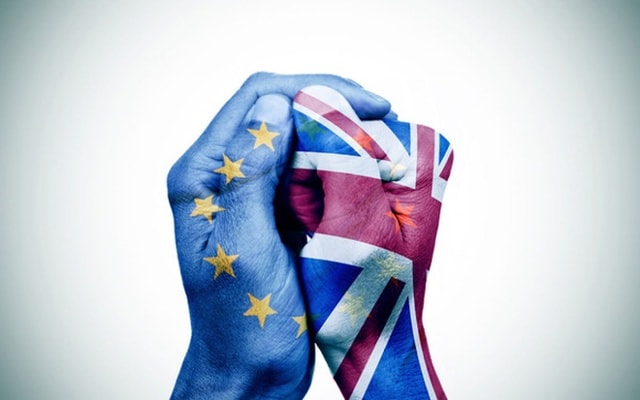 |
| More than half of Britain's trade is with the EU, while trade with the rest of the world is based on the bloc's agreements. If Britain leaves the EU, the first impact is likely to be financial market turmoil as risks increase, along with a decline in investment and consumption - Illustration: Newstateman. |
Currently, the London Exchange handles 74% of foreign exchange transactions with the EU and 40% of euro transactions globally. In addition, there are 240 global financial corporations and headquarters located in London. Over 80% of financial corporations support Britain remaining in Europe and financial corporations have stated that if Britain leaves Europe, they will move their headquarters from London to Paris.
Under certain conditions, Britain can be considered the economic pillar of Europe, so if Britain leaves Europe, it will certainly affect the European economy. Politically, there is a risk of creating a domino effect. When Britain leaves Europe, it is possible that Greece, Portugal, and even Italy may hold a referendum to leave Europe. Whether this effect will happen or not depends on the steering, management, and redesign of the pillar powers such as France and Germany. The possibility of Europe disintegrating is not excluded, but it is not a day or two.
PV: On June 23, British voters will go to the polls to decide whether to leave or stay in Europe. Can you comment on the results of this referendum?
Major General Le Van Cuong:Political developments show that, after receiving concessions from Europe, it is British Prime Minister David Cameron who has spoken the most about the tragedy that every British citizen will suffer if Britain leaves Europe. In the past 2 months, the British Prime Minister has unleashed the full power of the powerful British media system and that power certainly has an impact on the choice of British voters.
My prediction is that the result will be around 55% to stay and 45% to leave, meaning that the UK will remain in Europe. This satisfies 580 million Europeans, satisfies the majority of British people, but it deepens an inherent social contradiction in British society. The end of the referendum does not mean the end of a painful social problem but the beginning of another painful problem: to stay or to leave.
After this second referendum, Britain may still be in the EU for the time being, but the issue of leaving still exists in British society and continues to be a card for politicians at election times when they are fighting for power.
PV: Thank you, Major General, for the interview!
An Nhan
(Perform)
| RELATED NEWS |
|---|


